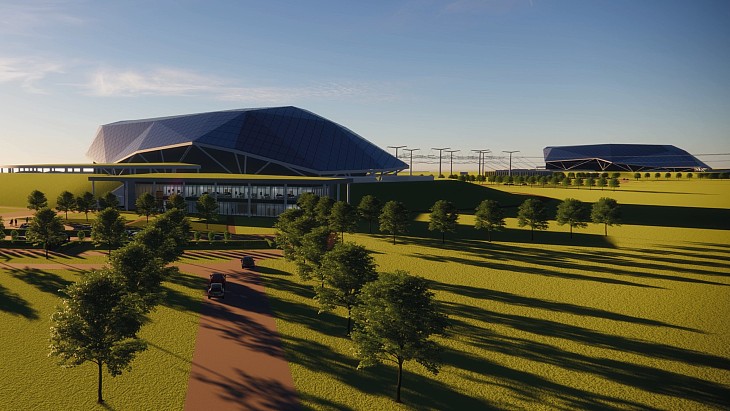The two "umbrella" agreements - a Strategic Partnership Project Agreement and a Cooperative Research and Development Agreement - are with Battelle Energy Alliance, LLC, DOE's operating contractor for INL, with an initial duration of seven years, the company said.
Lightbridge's metal nuclear fuel technology, suitable for use in both small modular reactors and existing light-water reactors, has been developed with support from the DOE through its Gateway for Accelerated Innovation in Nuclear programme. The fuel operates at temperatures around 1000°C cooler than standard fuel, and offers enhanced reactor safety, economics and proliferation resistance.
The initial phase of work under the two agreements will culminate in irradiation testing in INL's Advanced Test Reactor (ATR) of fuel samples using enriched uranium supplied by DOE, providing performance data for Lightbridge's delta-phase uranium-zirconium alloy. This data will support fuel performance modelling and regulatory licensing efforts for the commercial deployment of Lightbridge Fuel, the company said.
Subsequent phases of work under the two umbrella agreements will include post-irradiation examination of the irradiated fuel samples, loop radiation testing in the ATR, and post-irradiation examination of one or more uranium-zirconium fuel rodlets, as well as transient experiments in INL's Transient Reactor Test Facility (TREAT).
Lightbridge President and CEO Seth Grae said the announcement marks a "major milestone" for the company and its fuel development programme. "Securing a long-term strategic relationship with INL, in collaboration with DOE, gives Lightbridge access to state-of-the-art ATR and TREAT reactor test facilities right here in the United States," he said.
The framework agreements lay a "strong foundation" for development efforts towards the commercial deployment of Lightbridge Fuel, he added.
ATR - described by INL as the world's premier nuclear test reactor - is a pressurised water reactor which produces neutrons, rather than heat, and is used to perform irradiation testing of many nuclear materials and fuels. It also produces the medical radioisotope cobalt-60 and plutonium-238 for NASA deep space exploration missions. TREAT is an air-cooled, thermal-spectrum test facility designed to evaluate the response of reactor fuels and structural materials to accident conditions. The facility was placed on standby in 1994, but was restarted for use in the development of new reactor fuels in in 2017 and resumed operations in 2018.

.jpg)



_19544_40999.jpg)


_66668.jpg)





